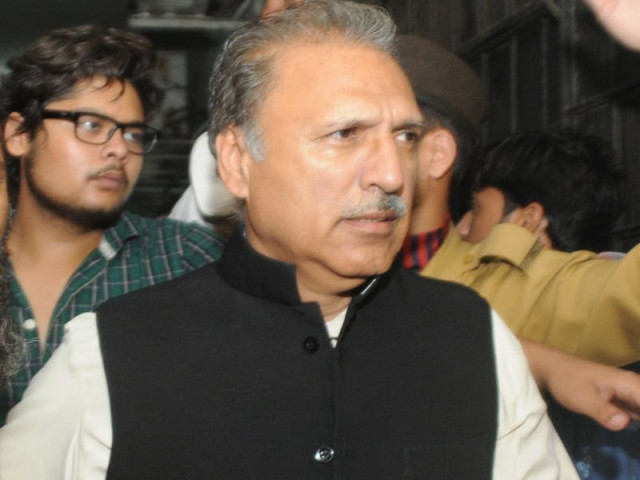'NAB should also probe into PTI projects'
President Arif Alvi highlights importance of across-the-board accountability

President Arif Alvi on Saturday highlighted the importance of across-the-board accountability and said the country’s top anti-graft body should also investigate into alleged irregularities in the Malam Jabba, Billion Tree Tsunami and Peshawar Bus Rapid Transit (BRT) and other projects, which involved the government of his own party, PTI.
Speaking to a private TV channel, he warned that if the present government allowed corruption to carry on like it was done in the past, all national institutions would meet the same fate as that of the Pakistan Steel Mills (PSM).
On the recent sugar and wheat scandals, the president said corruption had plagued the country throughout its history.
He pointed out that the government had taken an unprecedented step by going public with the reports of the inquiries into the sugar and wheat crises and the PIA plane crash.
“The government conducted an inquiry [into the PIA plane crash and dubious pilot licences] and made it public despite knowing the risks,” he added.
“Those involved in wrongdoing should be ousted. The heads [of such departments] should be removed.”
In December last year, National Accountability Bureau (NAB) Chairman Justice (retd) Javed Iqbal had announced that references regarding alleged financial irregularities in the PTI government’s two projects in Khyber-Pakhtunkhwa -- Peshawar BRT and Malam Jabba -- were ready.
Launched in October, 2017 by the then PTI’s K-P government led by Pervez Khattak, the BRT project was supposed to be completed in eight months, but it is still under construction and its cost has ballooned over Rs68 billion from Rs49 billion.
The opposition has repeatedly asked NAB to take notice of the delay and escalation of cost of the project, accusing the PTI government of financial wrongdoing. The case of Malam Jabba in Swat involves the leasing out of a 275-kanal plot of land for sports resorts to a relative of a provincial minister – a move which according to NAB officials has incurred losses to the national exchequer.
NAB had detected a loss of over Rs 462 million to the public exchequer in an initial inquiry into PTI’s flagship Billion Tree Tsunami Project.
Speaking to the TV channel, the president also said the 18th Constitutional Amendment, which had devolved powers from the Centre to the provinces, could be reviewed and changed just like any other law but it was necessary that it should be done with the consensus of all stakeholders.
He blamed the country’s financial crunch for the disagreements between the federal government and the provinces.
“Differences develop over the distribution of income even in a household when the financial conditions are tight,” he noted.” There have always been disagreements between the government and the provinces. They have been there since the time of independence,” he added.
The president said the Centre and the provinces would iron out their differences after an improvement in the country’s economic situation, which had been affected by the coronavirus pandemic.
On the Sindh chief minister’s announcement that his government would not collect withholding tax on the Centre’s behalf this year, Alvi said the federal government was aware of the province’s issues.
Prime Minister Imran Khan had said last month that the federal government had no disagreement with any province regarding the 18th Constitutional Amendment and it only intended to remove certain specific anomalies.
He added that some federal subjects were wrongly devolved to the provinces under the 18th amendment, which would be returned back to the Centre.
The opposition parties described the statements of PM Imran against the 18th Constitutional Amendment as worrisome and an attack on the Constitution,
They are also unhappy with make-up and terms of references of the 10th National Finance Commission (NFC) constituted by the president to determine new resources distribution formula between the Centre and the provinces.
The terms of the reference of the 10th NFC include new clauses about allocation of resources to meet security expenditures, loss-making enterprises, subsidies mechanisms and debt repayments – the four new areas that would be thorny issues to be decided by the Centre and the provinces.
(With additional input from news desk)



















COMMENTS
Comments are moderated and generally will be posted if they are on-topic and not abusive.
For more information, please see our Comments FAQ